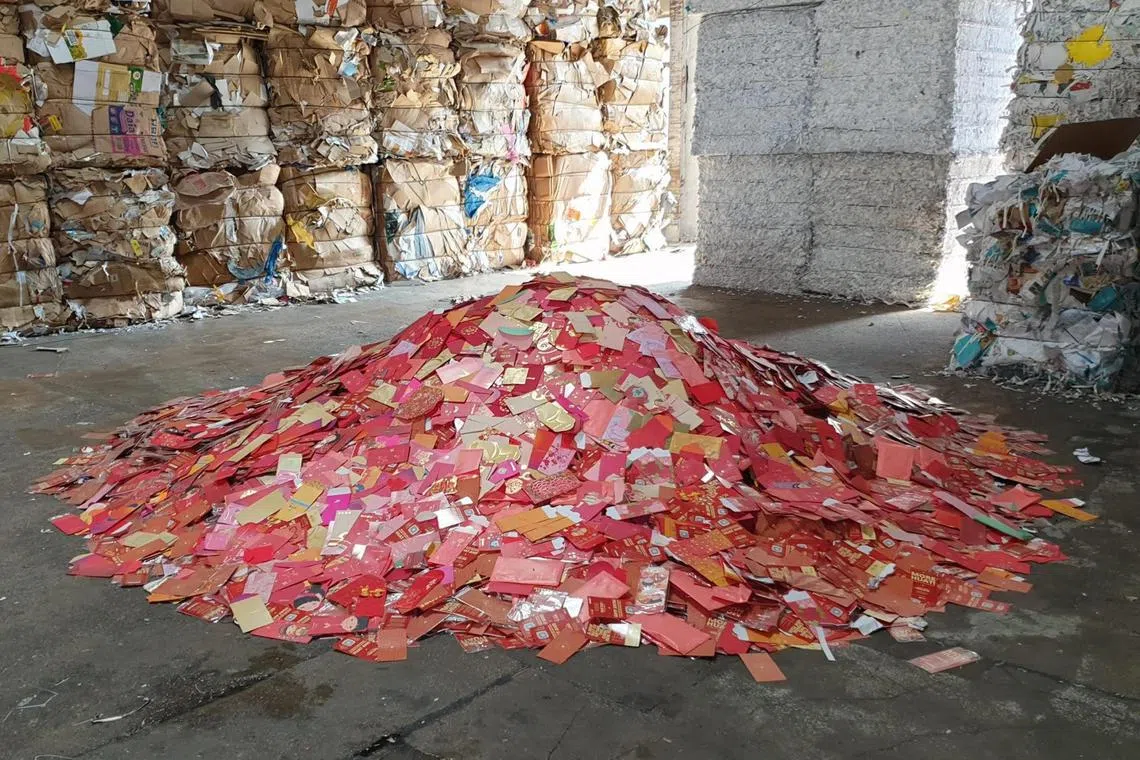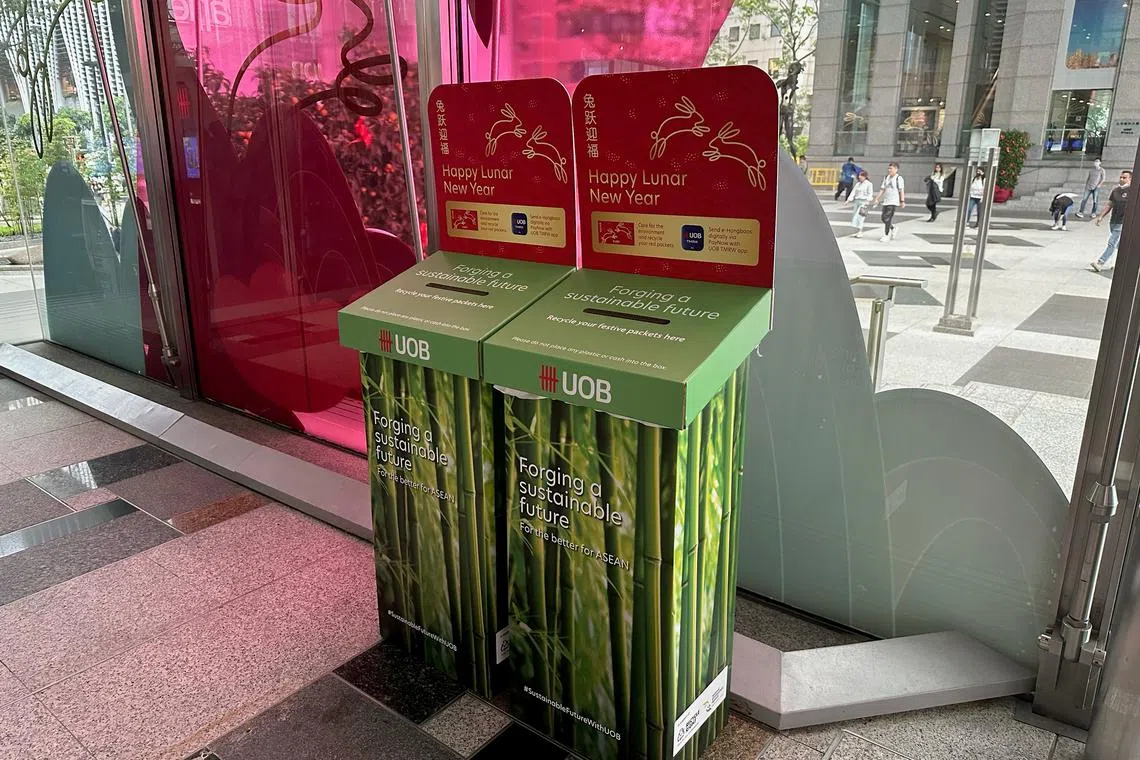More red packets repurposed in 2022 as businesses ramp up recycling initiatives
Sign up now: Get ST's newsletters delivered to your inbox

Red packets cannot be recycled in NEA’s blue recycling bins with other paper products due to a large amount of red ink used.
PHOTO: TAY PAPER RECYCLING
SINGAPORE - More red packets are getting a new lease of life in Singapore as businesses expand collection points around the island dedicated to recycling the festive envelopes, which are typically discarded after Chinese New Year.
Red packets cannot traditionally be recycled in the National Environment Agency’s blue recycling bins with other paper products, due to the large amount of red ink used for the paper which is mixed in with other materials such as plastic and foil, said Ms Jen Teo, executive director of non-profit Singapore Environment Council.
Having dedicated recycling bins allows for red packets, or hongbao, to be channelled to the right vendors who have the machinery and expertise to recycle them, she added.
There are currently more than 140 locations around the island with such facilities, including all DBS/POSB and most UOB branches, where people can recycle their red packets throughout the year.
Over the past five years, businesses such as banks and malls have made a concerted effort to green the tradition of giving red packets by ensuring that the products are upcycled into objects such as furniture and even future red packets.
Organisations told The Straits Times that they are repurposing more red packets than ever, with some recording hundreds of kilograms recycled in 2022.
Electricity retailer Geneco, for instance, collected a total of more than 1,040kg in 2022, up from more than 410kg the previous year.
Mr Alex Chan, head of brand, communications and marketing at Geneco, which has partnered several brands to set up recycling points at 30 locations
“This is especially so if the red packet designs have zodiac animals that are not relevant for the following year.“
Mr Daryl Chew, general manager at Tay Paper Recycling, which coordinates red packet recycling for five companies, said such single-stream services help reduce the time taken by the waste paper company to sort through red packet waste.
Collecting red packets in bulk allows for the removal of contaminants to take place at one go before the recyclable red packets are mixed with similar paper of low quality, he added.
“Once we have enough volume, the paper is exported overseas to customers that need them,” said Mr Chew.
Among the companies that have started recycling collection points is UOB, which recycled a record 2,540kg worth of red packets in 2022.

UOB’s red packet collection points at the bank’s main branch in Raffles Place on Feb 3.
PHOTO: UOB
Ms Lilian Chong, UOB’s head of group brand and corporate social responsibility, said the group has expanded from boxes at 20 selected UOB retail branches when the initiative was launched in 2020 to 42 branches in 2023.
These branches exclude UOB’s Hangout@UOB, privilege banking centres and express branches.
Ms Chong said: “In the first year of the initiative, we collected and upcycled 1,000kg used red packets into functional pieces of furniture such as tables, which were donated to charitable organisations to support children’s learning.
“Since 2021, UOB has been working with a local paper recycling company to recycle the used red packets into carton boxes.”
Likewise, OCBC Bank collected 4,000 red packets that were pulped to make cardboard boxes in 2022, and encourages customers to drop off their used and excess red packets into boxes at all its branches until Friday.
These dedicated recycling boxes help minimise the risk of contamination, said an OCBC spokesman.
Given the rise in red packet recycling initiatives, Singapore-based recycling resource Recyclopedia.sg has created a map of all the locations
Its founder Robin Rheaume said: “We’ve had people think that recycling is a marketing gimmick. But red packets are a problem because contaminants like foil stamping can mess up the recycling process of paper, which typically involves soaking the material in water.
“If businesses can collect enough red inky, gold-stamped paper, then they can bale that up and sell that as one type of paper that can be sold to a recycler that wants it.”



